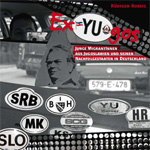Rüdiger Rossig | Journalist | Novinar
The Mayor And The General
Adenauer and de Gaulle set the path for Franco-German friendship | By Rüdiger Rossig
Colombey-les-Deux-Églises has a population of barely 700 and apart from them, nobody would even know of the place if it weren’t also where former French President Charles de Gaulle had his country estate. Even today, it’s not just the French who go there to pay their respects. The village is also the birthplace of Franco-German friendship.
When de Gaulle became president in 1958, relations between France and Germany were still marked by the Second World War. De Gaulle himself had been the leader of the Free French forces against the German occupation and was skeptical of Germany and the Germans. He wanted to prevent a reunified Germany so that it could never again be a source of danger for France. Adenauer, on the other hand, was very interested in France. After the First World War, as mayor of Cologne, he had viewed the neighboring country as a bulwark against a resurgently powerful Prussia.
According to protocol, de Gaulle, as the statesman with fewer years of service under his belt, should have visited Adenauer in Bonn in 1958. But de Gaulle was unable to come. He suggested a compromise: He invited Adenauer to what became the famous private visit of Sept. 14-15, 1958, in Colombey-les-Deux-Églises – one-and-a-half years after the Saarland returned to Germany. After the meeting they signed an official communiqué, which emphasized that hostilities between the two countries were at an end and from now on they wanted to work closely together. Of much greater importance was their personal relationship.
De Gaulle was extremely taken with Adenauer, who, for him, embodied all the characteristics a German should have. In particular, Adenauer did not have any of the traits that de Gaulle hated or feared in Germans. Adenauer was also very taken with his French counterpart. He saw in de Gaulle a cultivated officer who understood and supported Germany in its efforts to retake its place among the nations of the world.
Charles de Gaulle died in 1970 three years after Konrad Adenauer. What the two statesmen created has outlasted them both to this very day: the Franco-German friendship.
 English
English  Naški
Naški  Deutsch
Deutsch 
